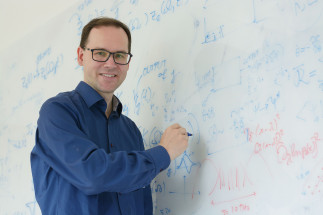The rapid progress in machine learning also leads to an unsustainable growth of resource requirements. Here neuromorphic systems may be part of the solution. The hope in this field is that building learning machines that operate close to the underlying physical principles may drastically reduce energy consumption and speed up computation.
In this talk I will give an overview of the field and then illustrate recent ideas that our group has worked out. One essential challenge is to discover efficient physics-based training methods. I will present the first known approach that would produce both backpropagation and parameter update entirely relying on physical interactions, so-called Hamiltonian Echo Backpropagation. Furthermore, I will describe our recent extension of Equilibrium Propagation, an established method for equilibrium-based training, to the quantum regime. Finally, I discuss our work that shows how one can exploit widely available relatively simple linear optical devices to nevertheless produce efficient nonlinear information processing and learning.
Florian Marquardt is a theoretical physicist whose current focus is on applying machine learning to scientific discovery and discovering physical systems that help for machine learning. He has a long-standing track record in areas bridging nanophysics and quantum optics, among them significant contributions to the theory of cavity optomechanics and the theory of superconducting circuit quantum electrodynamics. He is currently a scientific director at the Max Planck Institute for the Science of Light in Erlangen, Germany, as well as a professor at the local university. He studied at the university of Bayreuth, Germany, then
did his PhD in Basel, Switzerland (finishing in 2002), afterwards went on to a postdoctoral stay at Yale university and a junior research group leader position at the university of Munich, before moving to Erlangen.

